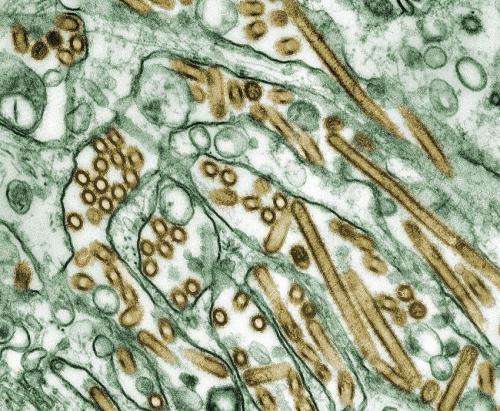Global Virologists Urgently Call for Action as H5N1 Avian Influenza Threat Escalates

The recent rise in H5N1 avian influenza cases has prompted a proactive response from the global scientific community. The Global Virus Network (GVN), which comprises leading human and animal virologists from over 80 centers across more than 40 countries, has published an in-depth analysis urging immediate action to prevent a potential pandemic.
The GVN advocates for heightened surveillance of both animal and human populations, emphasizing the importance of monitoring mutations that could increase the virus's transmissibility among humans. They highlight that the highly pathogenic H5N1 virus has already impacted nearly 1,000 dairy herds and led to more than 70 human cases, including the first recorded death in the United States. The virus continues to circulate widely, affecting all 50 states in the U.S. and Canada, resulting in the culling of over 168 million poultry since 2022.
Experts warn that while direct human-to-human transmission has not yet been documented, mutations and genetic reassortments could change the virus's behavior, making it more contagious. This necessitates comprehensive genomic surveillance and rapid data-sharing to track viral evolution effectively.
Addressing this threat requires an integrated approach, including improving farm biosecurity with proper protective measures, developing self-administered diagnostic tests for early detection, and investing in vaccine research for both animals and humans. Strengthening public health infrastructure and fostering international collaboration are also critical components of preparedness.
The GVN stresses the importance of understanding virus phenotypes from genetic data, accelerating vaccine development, and ensuring readiness for rapid clinical trials. Experts like Dr. Sten H. Vermund and Dr. Marion Koopmans emphasize the need for continuous monitoring, research, and transparent communication to effectively combat the spread of H5N1.
Prominent scientists such as Dr. Peter Palese and Dr. Ab Osterhaus underline the importance of biosecurity in agriculture and monitoring animal-human transmission pathways. They call for robust surveillance systems and community engagement to prevent further outbreaks and protect public health.
As the virus continues to evolve, global cooperation and timely intervention are crucial to prevent a looming pandemic. Maintaining vigilance, enhancing surveillance, and adopting a One Health approach can help contain the spread of this dangerous virus and mitigate its impact on society.
Stay Updated with Mia's Feed
Get the latest health & wellness insights delivered straight to your inbox.
Related Articles
Mpox Outbreak in Sierra Leone: Causes, Risks, and Preventive Measures
Sierra Leone faces a rising mpox outbreak with over 4,000 cases, driven by person-to-person transmission. Regional risks are growing, urging enhanced surveillance, vaccination, and regional cooperation to prevent wider spread.
Most Americans Support Vaccine Mandates Despite Rising Anti-Vaccine Rhetoric, New Surveys Indicate
Recent surveys in 2025 indicate sustained support among Americans for vaccine mandates despite rising anti-vaccine rhetoric and political debates, highlighting the importance of public health education.
Elevated Eye Pressure May Contribute to Vision Loss and Ocular Damage
New research shows that increased intraocular pressure can distort eye blood vessels and cause tissue hypoxia, leading to irreversible vision loss. Early detection and intervention are crucial in glaucoma management.



